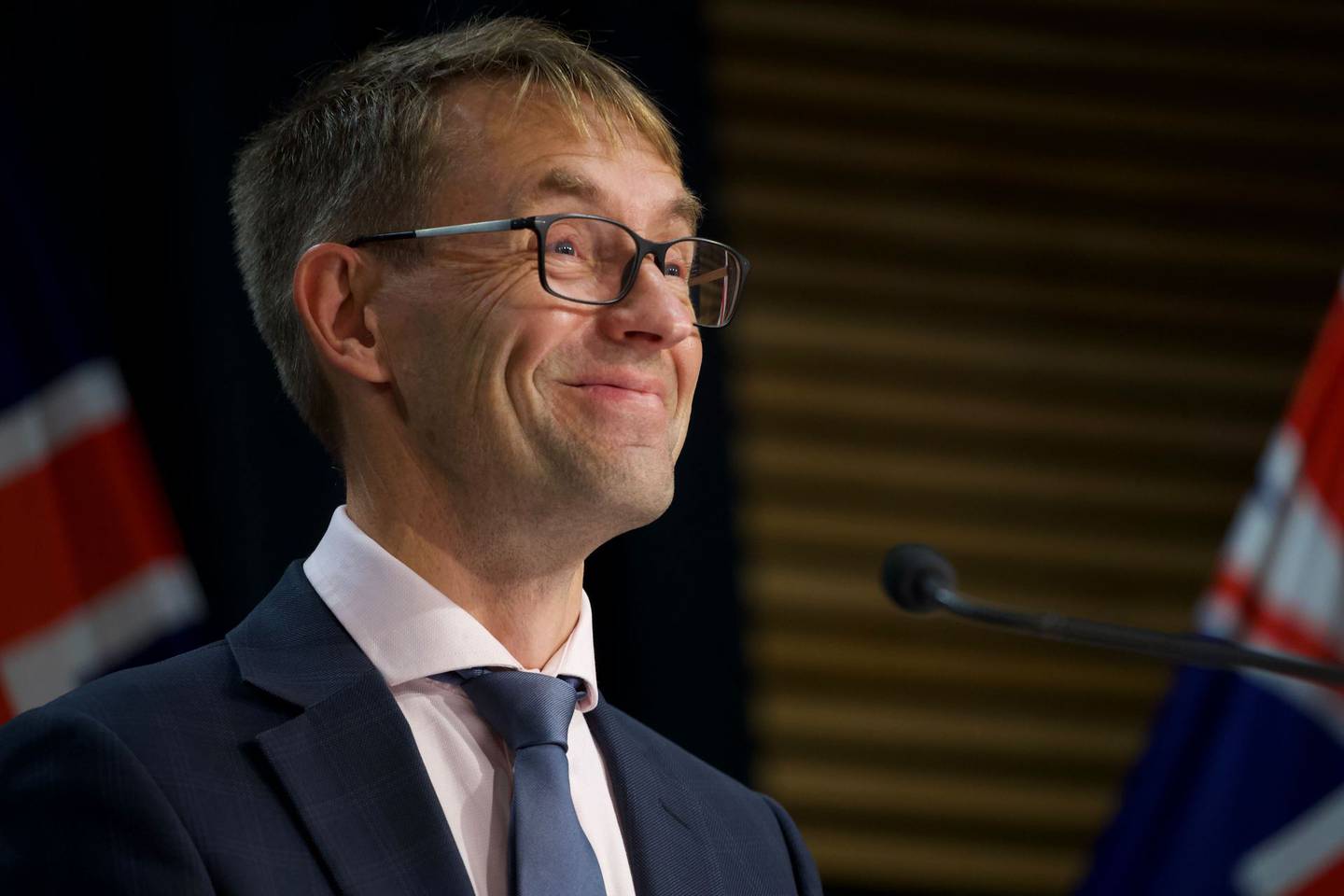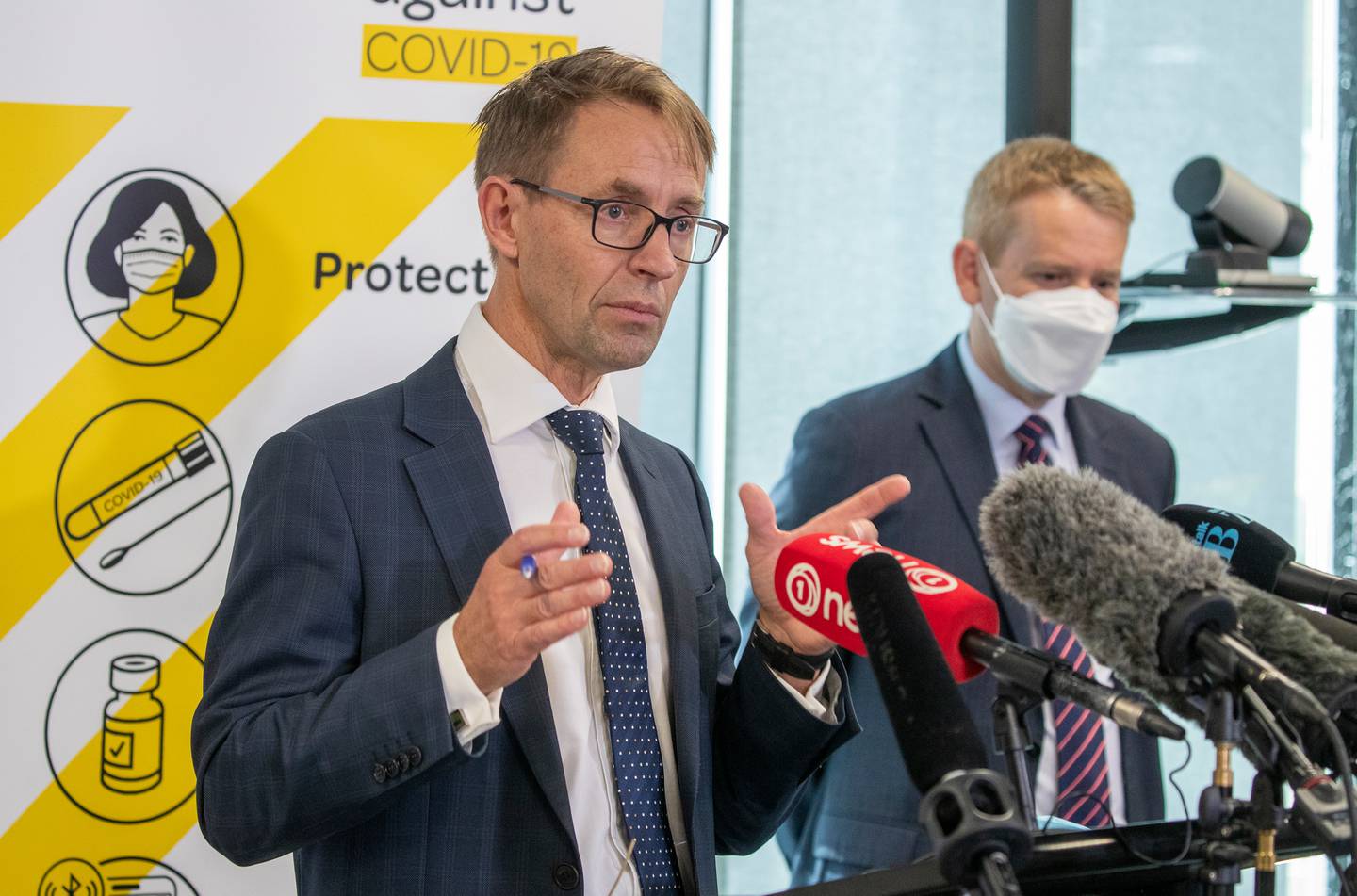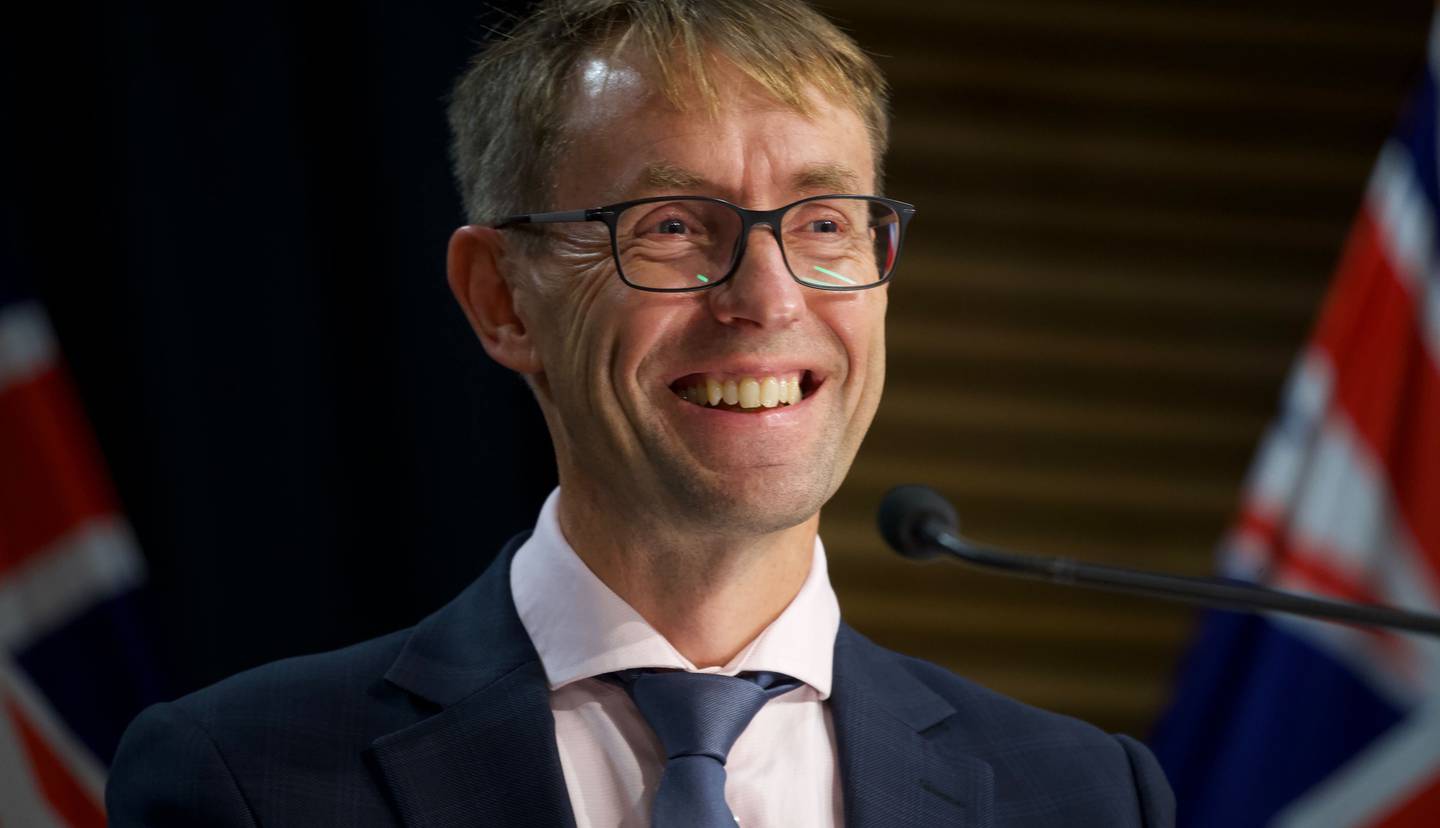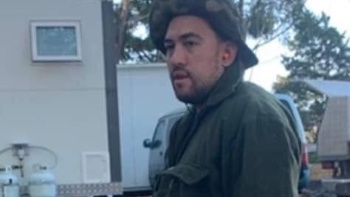Covid-19 Response Chris Hipkins has given a personal thank you to the person he says Kiwis know as "the DG".
Director-General of health Dr Ashley Bloomfield this morning announced that he would step down at the end of July – almost a year before his term was due to end in June 2023.
In an email to Ministry of Health staff, Bloomfield said he believed it was the right time to go because the Covid-19 response was more settled ahead of the Government implementing major reforms of the health system.
"It's a good time for me to step back and allow a new director- general to shape and lead the organisation in future.
"The DG role is complex and challenging at any time and, with a one in 100 years pandemic, the last two years have been particularly challenging and intense," Bloomfield said in the email.
"I've done everything I set out to do when I came into the role."
Speaking at the 1pm press conference this afternoon, Hipkins acknowledged Bloomfield saying his workload was enormous, and not just with Covid-19.
His entire life had been dedicated to the health and wellbeing of New Zealanders, Hipkins said.
"You have saved thousands, if not tens of thousands of lives," Hipkins told Bloomfield.
Hipkins also referred to election night, when it was close to polls closing, and Bloomfield rang to tell him of a community case.
"It was Dr Bloomfield who had the job of calling me at all hours of the day or night.
"So, thanks for ruining that for me," he joked about Bloomfield interrupting his election night celebrations.
He said he respected Bloomfield's decision to step down.
On his reasons for leaving, Bloomfield said he had a five-year contract but the three prior Directors-General had done 3-4 years.
"The last two years could not have been more complex and challenging. I've been thinking for a while about when would be a good time to step down."
He said his family would be happy to have more time with him.
"The hardest thing for me today will be talking to my staff in an all-staff Zoom meeting."

Dr Ashley Bloomfield said he had been thinking for a while about when would be a good time to step down. Photo / Mark Mitchell
He said he had "mixed feelings" about leaving because of the staff at the ministry and would be "sad" to leave.
"Throughout the last two years, from New Zealanders across the country, I've had a lot of messages of encouragement and support" – but he said that was not for him, but the staff.
"I still find it a surprise walking down the street and people recognise me, but maybe that will now change."
Asked what he was most proud of, Bloomfield said it was the way New Zealanders and the public service had worked together during Covid-19.
Asked for a favourite moment, he said "some are more memorable than others". He said hitting such high vaccination rates had been "such a highlight".
Hipkins said he was "sad, but also very happy for Ashley. He thoroughly deserves a break."
He said the personal sacrifice that was made by those leading the response had been huge.
"The pandemic is something you carry with you 24/7, even when you're on a break," Bloomfield said.
Asked if he had ambitions to run for Parliament, he said, very quickly "not a jot".
Bloomfield said he was proud of the high vaccination rates across the country, including for Māori. He acknowledged the take-up by Māori was slower among younger Māori, but lessons had been learned from that.
"I'm also proud of what we've learned about what we need to do."
For his successor he said it would be "a challenge, but also an opportunity" as the new health reforms bedded in.

Director general of health Dr Ashley Bloomfield with Covid-19 Response Minister Chris Hipkins. Photo / Mark Mitchell
Asked if he had been offered, or wanted a role in the new Health NZ body, Bloomfield said he had been happy with the role he had.
He was working closely with the chief executives of Health NZ and the Māori Health Authority in the interim. But it was a good time for a new person to come in – and the role involved was "very different" to the role he had taken on when he was first appointed as director-general.
Asked if he had any regrets, Bloomfield said every day he had thought about things they should and could be doing better.
"In terms of regrets, not specifically, except that I didn't write down what was happening at the time – I was too busy."
He said a diary would have been useful "but maybe my memory will serve me well enough."
He believed they had achieved what they set out to do.
He had noted the nature of the feedback directed at the Ministry of Health officials was "very gendered" – his female colleagues got a very different type of response to him "and I think that is terrible, and it's something we need to do something about."
The biggest decision that weighed on him was the first decision to go into lockdown, and the advice he gave around that. It was something they had never thought they would do.
"There was a lot at stake," he said.
Prime Minister Jacinda Ardern earlier acknowledged Bloomfield's service during the Covid-19 era, saying he had been central to the Covid-19 response.
Asked how he felt about his celebrity status, he said he had tried to be himself throughout.
"I don't pay too much attention to the negative commentary and I am thankful for, but don't expect, the positive feedback."
Bloomfield said the weirdest gift he ever received was "a pair of tie-dyed Thunderpants." He was not wearing them today.
"Am I going to miss the limelight? No, not a bit."
There would be karaoke at his leaving party – "heck yes. I'll kick off with Friday, I'm in love, by the Cure."
15 deaths, 12,575 Covid cases
Meanwhile the Ministry of Health reported 12,575 new community cases today, continuing the overall trend downwards.
There are 654 people in hospital, with 23 in ICU.
There are a further 15 deaths to report, including people who have died over the previous four weeks.
These deaths take the total number of publicly reported deaths with Covid-19 to 443 and the seven-day rolling average of reported deaths to 18.
Of these people, three were from the Auckland region, five from Waikato, one from Taranaki, one from Whanganui, one from MidCentral, one from Nelson Marlborough, one from West Coast, one from Canterbury, and one from South Canterbury.
Two were in their 60s, two in their 70s, four in their 80s, and seven were over 90.
Delays in reporting deaths can be linked to people dying with, rather than from, Covid-19 and the virus being discovered after they had died.
On the coming winter
Bloomfield said the sector was preparing for winter with a baseline of cases and extra infectious diseases not seen for years due to the border closures.
Bloomfield said for Omicron, it was particularly important to get a booster vaccine.
People could also get Covid more than once and evidence showed vaccination offered better protection than earlier infection.
Bloomfield said unvaccinated people, and those without a booster made up a disproportionate number of those in hospital.
"Please do get a third or booster shot, if you haven't already."
There were concerns about flu circulating at the same time as Omicron, as the flu virus had not been circulating the past two years.
He said Covid-19 had taught people a lot about basic health measures to help protect against infection, including hand washing and mask use. These measures would help protect against other diseases as well.
Pharmac had bought more than two million flu doses – more than any other years.
If people hadn't had a flu vaccination before, this was the year to do it.
Bloomfield said he wanted to give MMR vaccines a plug. Those vaccination rates were lower than they should be particularly for Māori and Pasifika.
He urged parents to get their kids protected from measles too.
"The MMR vaccine is very effective and very safe. MMR vaccinations are lower than they should be, and need to be."
The catch-up campaign had also been kickstarted again.
He said vaccination rates for other vaccinations given to infants were comparably high - it was only the MMR that lagged.
On boosters
Hipkins announced this morning that from tomorrow young people aged 16 and 17 can get a booster dose of the Pfizer vaccine at least six months after completing their primary course.
The announcement follows MedSafe's provisional approval of the vaccine as a booster dose for this age group.
In March, Bloomfield said he had received advice from the Covid Technical Advisory Group that boosters should be available for 16- and 17-year-olds and the Government has made a decision on whether to go ahead with that.
Currently only those aged 18 and over are eligible for boosters.
Hipkins said this afternoon, boosters had been available on prescription for some time.
However, the Government decided to wait until MedSafe had gone through the approval process for that teenage group. "The evidence takes some time to put together."
"We want the process around approvals to be robust. I want to be able to say, hand on heart, this has been through a robust approval process."
Hipkins said he was concerned boosters had plateaued around the 73-75 per cent marker.
Bloomfield said 12–15-year-olds could get boosters if their GPs believed it was needed, but the technical advisory group had not recommended it as a general rollout.
Bloomfield did not have a view on whether there should be a separate agency for Covid-19. He said if it became endemic in the long-term, it should be treated alongside other public health issues.

Dr Ashley Bloomfield this morning announced that he would step down at the end of July. Photo / Mark Mitchell
Hipkins said the pandemic had some way to go, but eventually it would reach the stage where it was rolled into the wider health response.
On Monday, Cabinet decided to keep the country at the red light setting until at least before Easter, saying it needed to wait until hospitalisations were lower before easing to orange.
On RATs testing negative while PCRs tested positive, Hipkins said they had always known more cases would slip through the cracks with RATs than the more accurate PCRs.
However, you couldn't rely only on PCRs with the number of cases currently being dealt with.
"There is nothing here than is 100 per cent foolproof," he said – and that was why other measures were in place to compensate, such as mask use and isolation periods.
On support for people who could not work fulltime because of long Covid, Hipkins said it was under constant review. There was some support already, but the evidence was still mounting.
Today's cases
In a statement, the Ministry of Health said it was encouraging to see case numbers continue to decline. It said this supported the trend seen across the seven day rolling average - which today was 12,307 compared to 14,969 last Wednesday.
Today's community cases are in: Northland (619), Auckland (2,147), Waikato (1,101), Bay of Plenty (604), Lakes (299), Hawke's Bay (602), MidCentral (678), Whanganui (321), Taranaki (437), Tairāwhiti (128), Wairarapa (149), Capital and Coast (775), Hutt Valley (464), Nelson Marlborough (436), Canterbury (2,108), South Canterbury (249), Southern (1,368) and the West Coast (81).
The location of nine cases is not known, the ministry said.
There are 86,122 active commmunity cases.
The vast majority – 12,277 – of today's cases were found using RATs and 298 were found using PCR testing.
Meanwhile, 43 cases have been detected at the border.
The locations of today's hospitalisations are: Northland (25), Waitematā (100), Counties Manukau (124), Auckland (94), Waikato (57), Bay of Plenty (36), Lakes (12), Tairāwhiti (four), Hawke's Bay (25), Taranaki (15), Whanganui (eight), MidCentral (18), Wairarapa (two), Hutt Valley (15), Capital and Coast (15), Nelson Marlborough (13), Canterbury (57), South Canterbury (eight), West Coast (two) and Southern (24).
The average age of those admitted to hospital in the Northern region (Northland and Auckland) is 57.
Of those hospitalised in the Northern region, and excluding emergency departments, 44 cases or 13.34 per cent are unvaccinated or not eligible; ten cases or 3.03 per cent were partially immunised <7 days from second dose or have only received one dose; 67 cases or 20.3 per cent were double vaccinated at least seven days before being reported as a case and 80 cases and 24.24 per cent had received booster at least seven days before being reported as a case.
The status of 129 cases or 39.09 per cent is unknown.
The ministry said a booster dose was particularly recommended for 16 and 17-year-olds who are at higher risk of severe Covid-19 symptoms and hospitalisation.
"This includes those who are immunocompromised (or living with a family member who is immunocompromised) and Māori and Pacific rangatahi.
"A booster, in addition to first and second doses of the vaccine, is the best defence against Omicron."
To date, 72.7 per cent of eligible people have had their booster dose.
In the last 12 hours, 7727 PCR tests have been processed. In the seven days to April 5, three million RATs were dispatched.
Tuesday's numbers
Yesterday there were 23 Covid-related deaths reported and 14,120 new cases in the community.
A total of 692 people were in hospital, including 30 patients in intensive care.
Bloomfield also sounded a caution about the prospect of the XE strain arriving in New Zealand, saying it was likely tougher restrictions would be needed if it landed, including gathering limits.
The World Health Organisation has issued a warning about XE, a new strain of the Covid-19 Omicron variant which appears to be 10 per cent more transmissible than BA.2 Omicron, the current strain circulating in New Zealand.
The new variant is a mutation of the BA.1 and BA.2 Omicron strains and regarded as a "recombinant", being formed from at least two other viral sources.
Take your Radio, Podcasts and Music with you









